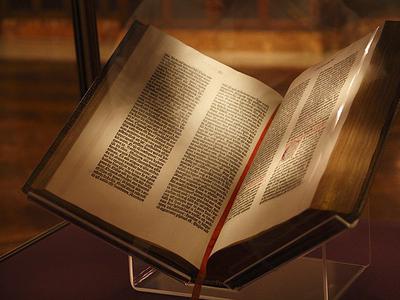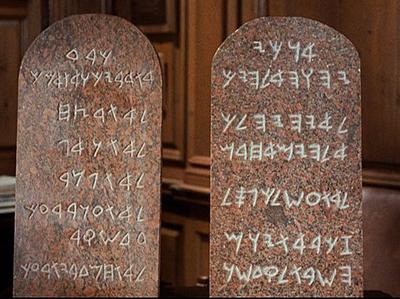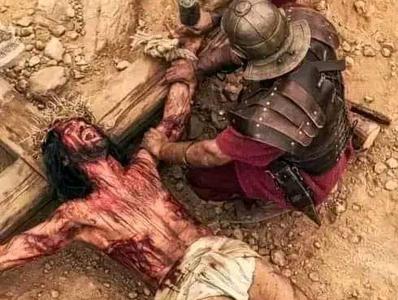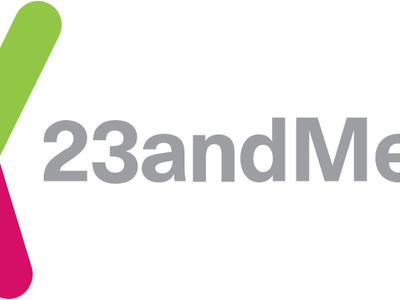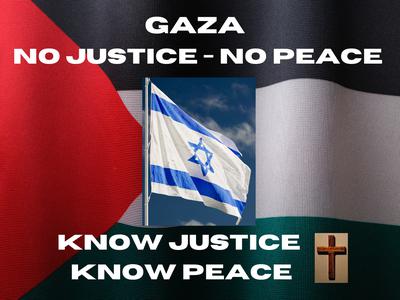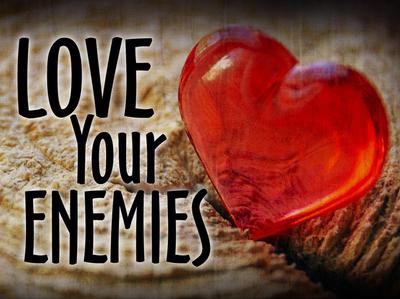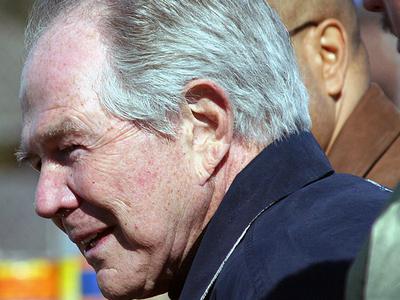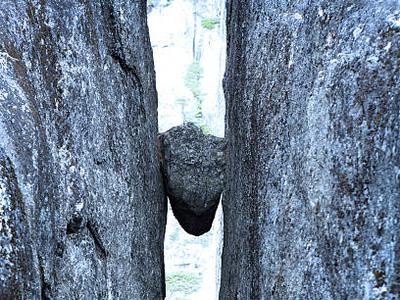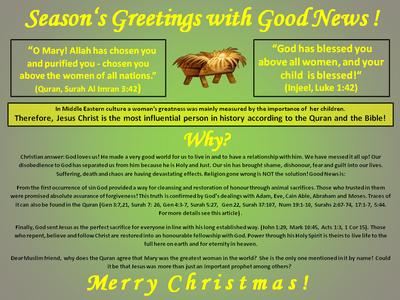
******************************
“O Mary! Allah has chosen you and purified you - chosen you above the women of all nations.” (Quran, Surah Al Imran 3:42)
“God has blessed you above all women, and your child is blessed!“ (Injeel, Luke 1:42)
In Middle Eastern culture a woman’s greatness was mainly measured by the importance of her children. Jesus Christ was born to the virgin Mary, the most blessed of all women. Therefore, he is the most influential person in history according to the Quran and the Bible!
Since both books have a great impact on our past and present the question arises:
Why is Jesus the greatest among all VIP's according to the Bible and the Quran?
Christian answer:
God loves us! He made a very good world for us to live in and to have a relationship with him. We have messed it all up! Our disobedience to God has separated us from him because he is Holy and Just. Our sin has brought shame, dishonour, fear and guilt into our lives. Suffering, death and chaos are having devastating effects.
Religion gone wrong is NOT the solution! Good News is:
From the first occurrence of sin God provided a way for cleansing and restoration of honour through animal sacrifices. Those who trusted in them were promised absolute assurance of forgiveness!
This truth is confirmed by God's dealings with Adam, Eve, Cain Able, Abraham and Moses. Traces of it can also be found in the Quran (Gen 3:7,21, Surah 7: 26, Gen 4:3-7, Surah 5:27, Gen 22, Surah 37:107, Num 19:1-10, Surahs 2:67-74, 17:1-7, 5:44. For more details see this article below).
Finally, God sent Jesus as the perfect sacrifice for everyone in line with his long established way (John 1:29, Mark 10:45, Acts 1:3, 1 Cor 15). Those who repent, believe and follow Christ are restored into an honourable fellowship with God. Power through his Holy Spirit is theirs to live life to the full here on earth and for eternity in heaven.
Two questions
Dear Muslim friend, why does the Quran agree that Mary was the greatest woman in the world? She is the only one mentioned in it by name! Could it be that Jesus was more than just an important prophet among others?
Dear believers of all other faiths, including atheists: What do you think about God's unique way to give us abundant life?
Please share your thoughts with @FreeTruths
M e r r y C h r i s t m a s !
******************************
Want more details? Read on here:
Good News explained to Muslims, Christians and all other believers, including Atheists
The Gospel is described as, 'the power of God that brings salvation to everyone who believes…' (Romans 1:16)
This powerful and unique message can be summarized as:
Restoring Honour in front of God and people
According to the previous Scriptures, the Torah, Zabur and Injel, sin produces shame, fear guilt and dishonour. Sin is much more than simply wrong doing. That is only one result of wrong thinking and wrong being.
Due to the seriousness of sin from the perspective of God who is absolutely Holy, He showed one unique way to mankind how to deal with it. The principles of God's way are first reflected and later clearly taught in the following, well known stories:
Adam and Eve:
When they sinned and discovered they were naked, a horrible shame and fear entered into their lives. They tried to cover themselves with leaves. God gave them garments of animal skin, pointing to the first sacrifice that deals with the devastating result of sin. (Genesis 3:7, 21)
Men's effort to do good deeds (symbolised by the leaves) to cover their shame and fear caused by sin was not enough from God's perspective. In the Quran too God gives them 'clothing to cover their shame.' (Surah 7, Al Araf, verse 26). Shame only comes as a result of sin. Where there is no actual, consciously committed sin there is no shame, hence small children do not mind being naked.
Cain and Abel known as Habil and Kabil in the Quran:
God accepted the animal sacrifice of Abel but rejected the sacrifice of crop made by Cain. (Surah 5, Al Maida, verse 27, Genesis 4:3-7)
Abraham:
God provided an animal as a sacrifice instead of the son (Surah 37, Al Saffat, verse 107, Genesis 22). It cannot have been a simple act of worship on Abraham's part because the Quran says, 'we ransomed him with a mighty sacrifice.' Compared with the son who is much more valuable than an animal, the latter must have been called 'mighty' because it symbolically pointed to a perfect sacrifice to come in the future.
Moses:
He was commanded by God to sacrifice animals for the absolute certain forgiveness of sins of the people of Israel (Numbers 19:1-10). Traces of this story are found in Surah 2, Al Baqara, verses 67-74.
The Jewish Temple and its priests are also mentioned in Surah 17:1-7 and 5:44. Daily sacrifices of animals for the forgiveness of sins were central to both according to the Torah.
Jesus:
Animal sacrifices in the Torah (Old Testament) are less valuable than human beings. They only pointed to the perfect and sinless sacrifice to come. An illustration may help to understand this better: It is a bit like a cheque (=animal sacrifice) which guarantees money (=Jesus and his death). Once it is paid, the cheque becomes obsolete.
Jesus died on behalf of all people in the world to take away the sins, shame, fear and guilt of all those who repent and believe in him (John 1:29, Mark 10:45). God confirmed his work by raising Jesus back to live on the third day and up to Him about forty days later. (Acts 1:3, 1 Cor 15)
Since Muslims are asked in the Quran to believe in the previous books from which I just explained God's way to forgive mankind, do you believe in it?
If not, please consider Surah 2, Al-Baqarah, 107:
"Whatever message We abrogate or cause to be forgotten, We bring one better than that or the like thereof..."
What could possibly be better than to receive instantly:
- absolute forgiveness of sins
-restoration from shame to honour
-release from fear and guilt
-power for a life in obedience to God.
All this has been promised in the previous Scriptures to all who truly repent and believe in God's way.
Yes, but.....has not the Bible been changed?
The answer to this question needs to be considered in the wider context.
According to Muslim sources, Muhammad did not memorise the Quran perfectly (Sahih al-Bukhari: vol. 1, bk. 8, no. 394; vol. 6, bk. 61, no. 556; Sahih Muslim: bk. 4, no. 1720).
Sometimes he edited it (Sahih al-Bukhari: vol. 6, bk. 61, no. 512; Sahih Muslim: bk. 20, no. 4676-4677).
There are seven authorised readings of the Arabic Qur'an with fourteen transmissions.
These have small but real differences between them and different parts of the world use and print different transmissions. (Sahih al-Bukhari: vol. 6, bk. 61, no. 514; vol. 4, bk. 56, no. 682) Umar bin Al-Khattab and Hisham bin Hakim were from the same tribe, therefore, this difference was not a matter of dialect. The phrase 'In the name of Allah...' appears 113 times at the start of the Surahs. Unlike the Warsh Quran, the Hafs version considers it as part of Allah's revelation.
The Quran was not collected into one book under Muhammad's supervision.
His companions did this by gathering material from various sources, discussing among themselves what parts of what Muhammad said were Qur’anic. (Sahih al-Bukhari: vol. 6, bk. 61, no. 509; Sahih Muslim: bk. 5, no. 2285)
Several different collections were made by the companions of Muhammad
(Sahih al-Bukhari: vol. 6, bk. 60, no. 468; vol. 6, bk. 61, no. 527; Sahih Muslim: bk. 4, no. 1799-1802)
Under Utman one collection was commissioned and all the others were burnt in 653 AD (Sahih al-Bukhari: vol. 6, bk. 61, no. 510). It was not accepted by Abdullah ibn Mas’ud, one of the greatest reciters of the Qur’an and Muhammad said to learn the Qur'an from him (Sahih al-Bukhari: vol. 6, bk. 61, no. 521, 522, 576 )
The Uthmanic Quran was not complete. A long chapter and two verses were missing
(Sahih Muslim: bk. 5, no. 2286, bk.8, no 3421, Sahih al-Bukhari: vol. 8, bk. 82, no. 817).
Some of the ancient Uthmanic Qur’an manuscripts are not identical to the modern Qur’an
(www.qurantext.org)
The chain of narration for the modern Hafs Qur’an does not guarantee that it is authentic since Abdullah ibn Mas’ud and Ubayy ibn Ka’b did not recite it that way.
The 1924 Egyptian Standard Edition of the Qur’an has gone through several minor adjustments in 1924 and 1936. (Gabriel Said Reynolds, The Qur'an in its Historical Context, London: Routledge, 2008, p. 2)
According to Surah 15, Al Hijr, verse 9 the Quran is not supposed to have ANY variant readings, let alone a missing chapter and verses.
The Torah and the Nevi'im (Prophets) has been recognized by Jews since the time of Ezra, about 450 BC (Talmud: Bava Basra 14b-15a, Rashi to Megillah 3a, 14a) The whole Hebrew Bible canon as we know it today existed around 200 BC. (The Illustrated Bible Dictionary by F.F.Bruce, 1980, IVP, Leicester)
Christians hold the Bible to be inspired by God without fault in its original form.
The main message concerning the death of Jesus and his subsequent resurrection for the forgiveness of sins, the removal of shame, remained unchanged throughout all generations and faith traditions. He is indeed the perfect, living and unchanged word of God.
Since all books have a history of development, Christians acknowledge that variant readings have crept in during the copying of manuscripts.
The well-known textual scholars Westcott and Hort came to the conclusion that only one-sixtieth of all variant readings would rise above 'trivialities.' This leaves a text 98.33 percent pure. ('General Introduction to the Bible' by N.L. Geisler and W.E. Nix, Moody Press, Chicago, 1986, page 365). A. T. Robertson, another great expert in this field, said, that the real concern is only with a 'thousandth part of the entire text.' ("An Introduction to the Textual Criticism of the New Testament" by A.T. Robertson, Broadman, Nashville, 1925, page 22)
Because all manuscripts have been carefully preserved a scholarly study is possible to determine the correct readings.
The various inspired accounts surrounding the live and work of Jesus Christ were accepted and circulated among the first Christian gatherings. The oldest list of books contained in their collection is known as the Muratorian Canon. It was compiled in A.D. 170 and included all of the New Testament books except Hebrews, James, and 3 John.
There are some differences in the list of books included in the Bible of the seven Christian traditions. However, all of them generally and substantially contain the same sixty six books of the protestant denomination.
(https://en.wikipedia.org/wiki/Biblical_canon#Canons_of_various_Christian_traditions )
Other books were added only later for various reasons. E.g. in the fourth century the Syriac Church accepted some Apocryphals to be part of the Bible. The Roman Catholic Church added some books in 1563 as a reaction to the Protestant Reformation. (http://www.christianityexplained.net/explainedto/muslims/2.html )
When considering these developments, three points are important to stress:
• At the centre of the Gospel is Jesus Christ, the living, perfect and unchanging word, not a written book. (John 1:1-3)
• All Christians of all traditions at all times have found assurance of salvation, of shame restored to honour and power for a changed life through repentance and faith in Jesus Christ alone.
• In spite of the history of the Bible, both the Torah and Injeel (Old and the New Testament) have been declared trustworthy by the Quran
(Surah 19, Maryam, verse 12, Surah 3, Ali'Imran, verse 48, Surah 34, Saba, verses 12, 31, Surah 35, Fatir, verse 31, Surah 7, Al Araf, verse 159, Surah 5, Al Ma'idah, verses 43, 44, 47, 66, 68, 69 Surah 3, Ali 'Imran, verse 93, Surah 10, Junus, verses 64, 94, Surah 2, Al Baqarah, verses 41-42, 44, 136, Surah 3, Ali 'Imran, verses 78, 93 Surah 5, Al Ma'idah, verse 13, Surah 2, Al Baqarah, verses 75-79, Surah 4, Al Nisa, verse 46: the last four passages refer to Jews reciting the Torah wrongly and writing down wrongly what the prophet of Islam said).
For more information, questions or comments please contact:
ForAllGoodNews@gmail.com
or:
@FreeTruths
or:
www.christianityexplained.net
www.muslimjourneytohope.com
www.MuslimHope.com (English, Arabic , Indonesian, Malaysian, Punjabi, Swahili, Turkish Urdu)
www.JourneyToJesus.com
www.GospelForMuslims.com
www.DreamsAndVisions.com (English, Arabic)


